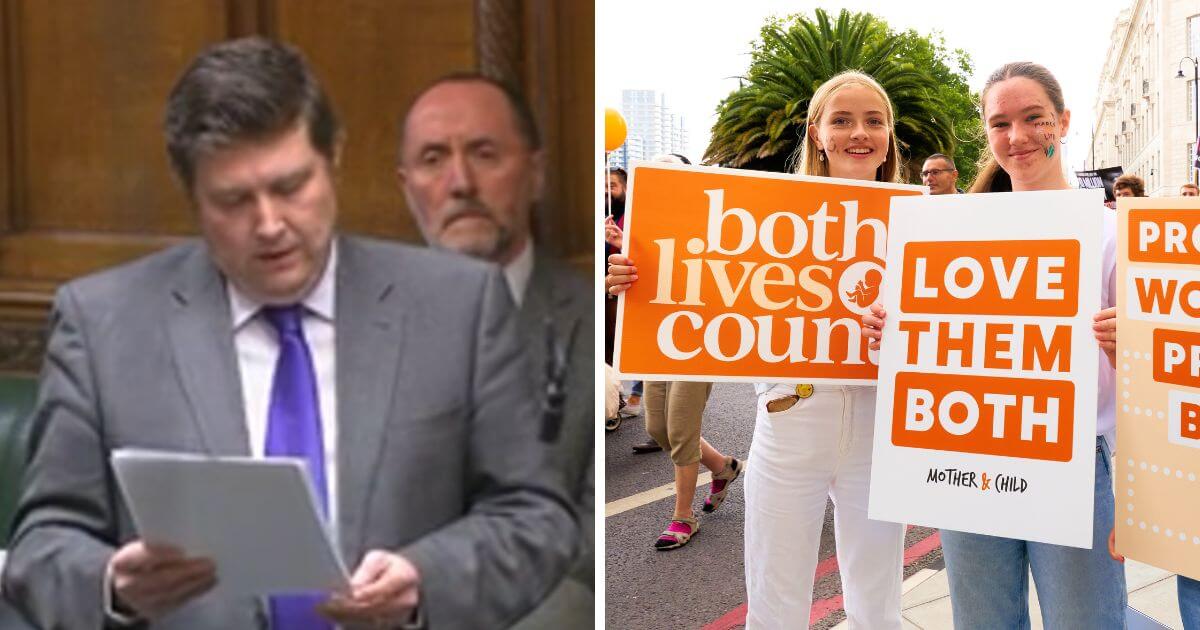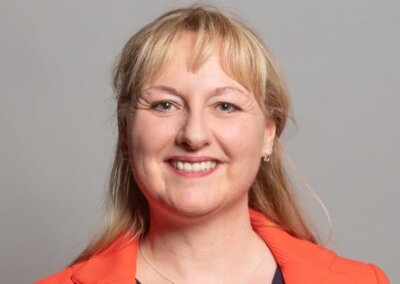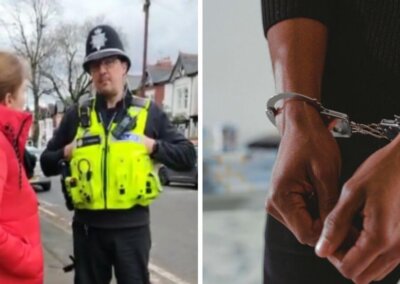An MP has asked the Government for clarity on the policing of ‘thoughtcrime’ and silent prayer outside abortion clinics following the passing of an amendment to the Public Order Bill that will introduce buffer zones outside abortion clinics.
Andrew Lewer MP asked the Government if guidance had been issued to “prevent people from being arrested…for what they are thinking about or for silent prayer”. He had previously brought forward an amendment to lessen the negative impacts of the buffer zone clause that was added to the Public Order Bill. Unfortunately, his amendment was voted down by MPs.
The Home Secretary, Suella Braverman KC, answered that guidance had already been issued on the policing of non-crime hate incidents. She said that “the College of Policing and the National Police Chief Council will be working on new guidance to reflect the new offences in the Public Order Bill”.
“We are encouraging the police to strike a better balance so that freedom of speech is being protected in their efforts to keep the public safe”.
“I want to reassure him that we are doing everything to ensure that the sensitive balance is struck so that freedom of speech is protected while safeguarding the public.”
An alarming trend of peaceful activities being criminalised
Isabel Vaughan-Spruce was arrested earlier this month for praying silently outside a closed abortion clinic just three weeks after she was acquitted on similar charges. West Midlands Police arrested Vaughan-Spruce for an alleged violation of the Public Services Protection Order (PSPO).
In a video posted online by the legal group ADF UK, a police officer asks Vaughan-Spruce, who is standing still with her hands in her pockets, if she will move outside the PSPO.
In response, Vaughan-Spruce says “But I’m not protesting. I’m not engaging in any of the activities that are prohibited…”.
To which the officer replies “But you’ve said you’re engaging in prayer, which is the offence.”
She then tells the officer that it is silent prayer, which he says is “still an offence.”
Her experience is not an isolated incident. Last month, A priest was charged with breaching buffer zone rules by praying silently and holding a sign with the words “praying for freedom of speech” near a closed abortion clinic in Birmingham. He also faced a further charge for an “Unborn Lives Matter” sticker on his car that was parked nearby. While the charges against him were dropped, there seems to be an alarming trend of criminalising such peaceful activities.
Right To Life UK spokesperson Catherine Robinson said “Andrew Lewer MP is right to demand clarity regarding the policing of these ‘crimes’ that are in actuality benign offers of help or silent prayer. Such activities should not have been criminalised in the first place.”











